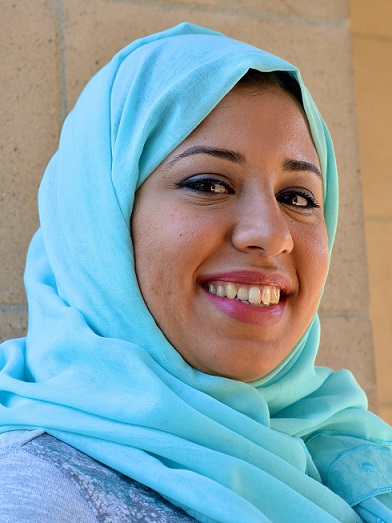Pronunciation Research & Practice
After watching the recorded presentations, join these authors for a live panel discussion on December 5, 2020 at 9:00 am – 9:30 am (CST). Moderator: Sondoss Elnegahy
| Presenter | Abstract |
|---|---|
 Edna F. Lima Associate Professor of Instruction | Adapting to new learning environments: Effective and engaging online pronunciation instruction Considering recent world events and the shift in educational priorities and environments, now more than ever there is the need for an effective, systematic way to teach pronunciation online. Better yet, there is the need for a self-study pronunciation course that will allow students in diverse learning contexts to learn effectively on their own and to develop critical pronunciation skills such as awareness, self-monitoring, and transfer to a variety of real-world situations. Considering this backdrop, I introduce the Supra Tutor 2.0, an eight-module fully online English pronunciation course focusing on suprasegmentals (word stress, rhythm, and intonation) and describe its pedagogical and technological rationales. For instance, the course includes a range of activity types that reflect the communicative framework for teaching pronunciation (Celce-Murcia et al., 2010, pp. 44-45). In this particular framework, pronunciation instruction starts with awareness raising and ends with practice that is less structured, more extemporaneous, and requires learners to focus on both meaning and form. Some other principles guiding my development of the tutor include individualized instruction (Levis, 2007), an anxiety-free learning environment (Luo, 2016), flexibility (Engwall, Wik, Beskow, & Granström, 2004), a variety of speaker models and engaging materials and tasks (Lima & Levis, 2017), and autonomous practice (McCrocklin, 2016). In addition to explaining the rationale behind the development of the Supra Tutor, I will provide a brief tour of one of its modules. |
 Shannon McCrocklin Assistant Professor | Dictation Programs for Second Language Pronunciation Learning: Perceptions of the transcript, strategy use, and improvement Despite growing evidence that ASR-dictation practice provides benefits for L2 pronunciation learners (Liakin, Cardoso, & Liakina, 2014; McCrocklin, 2019; Mroz, 2018, Wallace, 2016), there is little research into the ways students engage in ASR-dictation practice. This study examines learners’ perceptions of the ASR-generated transcript as feedback and strategy use during practice. Participants (N=15) dictated 60 sentences to Google Voice Typing in Drive while being audio recorded. Following a mis-transcription, participants thought-aloud, discussing their interpretation of the transcript, utilized strategies and resources, and tried the sentence again with Google. Data analysis included qualitative analysis of think-aloud comments and quantitative analysis of both strategies used and improvement in dictation accuracy for subsequent attempts. Results showed that participants used the transcript to identify individual words with errors, but also hypothesized about segmentals and articulatory features causing errors. The most frequent strategy to improve production was covert rehearsal of target words, followed by listening to dictionary recordings of targets. However, potentially novel pronunciation learning strategies were also documented. Participants were able to improve the accuracy of the transcript in subsequent attempts, earning a perfect transcription by the third attempt in the majority of cases (91%). |
 Rania Mohammed Assistant Professor | Juggling the Worlds of Research and Teaching It has been a difficult task trying to balance between the two worlds of research and teaching. My current research is an extension of my dissertation. My dissertation research focused on finding prosodic variations within frequently occurring lexical bundles in an academic corpus consisting of lectures given by native speakers. Being interested in that area of research, I wanted to compare prosodic difference within lexical bundles between native and non-native lecturers as well as across different registers; i.e. between academic lectures and non-academic talks. Although this research is still in its early stages, I believe that this area of research may have an impact on pronunciation teaching for international teaching assistants to help them deliver lectures effectively. On the other hand, my students that I currently teach are very different in terms of language proficiency from the type of language learners my research aims to target. Most of my teaching hours is spent with students at beginner to intermediate level trying to help them succeed through a series of four-level intensive English courses during a course of one academic year. Therefore, I've felt that there is a discrepancy between my research and teaching worlds where I have to constantly juggle between them. Despite this discrepancy, a new area of research bloomed inspired by my teaching. Currently, I am interested in compiling a learner corpus that focuses on finding patterns of spoken and written errors made by learners. This research will have a direct impact on the group of learners I'm teaching that could help restructure the current curriculum to better address their needs. |